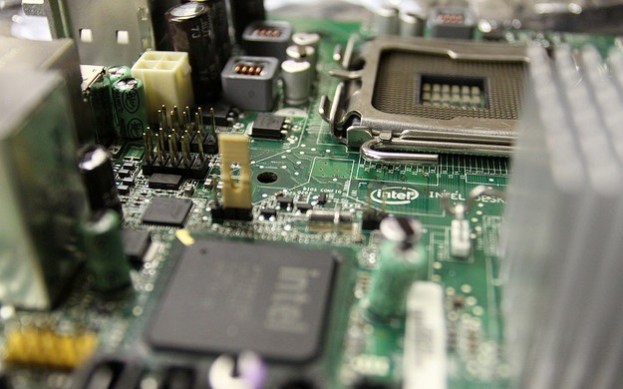
Intel announced that it will phase out its operations in making desktop motherboards, with no new products in that field planned for this year. The Haswell-based 4th generation Core i launch will be the last new project in that area for Intel. According to Xbit Laboratories, the company will shut down its desktop motherboard division over the course of three years. Instead, Intel will focus its energy on other emerging desktop solutions. “We are ramping up critical areas of the desktop space including integration of innovative solutions for the PC ecosystem such as reference design development, NUC and other areas to be discussed later,” company spokesman Daniel Snyder said. He added that Intel would continue to offer support for all products sold through their specified warranty period.
Intel has been in the field of desktop motherboards for about two decades, and developed a strong reputation among computer buyers. However, the company has faced competition from other businesses and mostly has not been able to surpass the performance or features offered by its motherboard rivals. The shift away from that unit is a sign that mobile options as well as desktops will probably be a part of Intel’s new strategy.
But that new focus doesn’t mean that the gut response to this news should be that Intel is abandoning the desktop or that desktops are dead. The field for these machines has changed rapidly since Intel was first powering them, and it’s clear that there is still plenty of interest among computer companies in making PCs cooler. Our lineup of the best desktop computers shows just how much range there is today in designs, style, and performance. And on the other end of the spectrum, Raspberry Pi and others are making machines cheaper and smaller, to the point where you could fit them in your pocket.
(Image via pat7047)
Editors' Recommendations
- Intel’s next-gen desktop chips may have two major changes
- Best gaming PC deals: Lenovo Legion, ASUS ROG, Acer Predator
- What to do if your Intel CPU keeps crashing
- No, Intel isn’t blaming motherboard makers for instability issues
- Save $300 on this HP desktop PC with an RTX 3060, 1TB SSD


